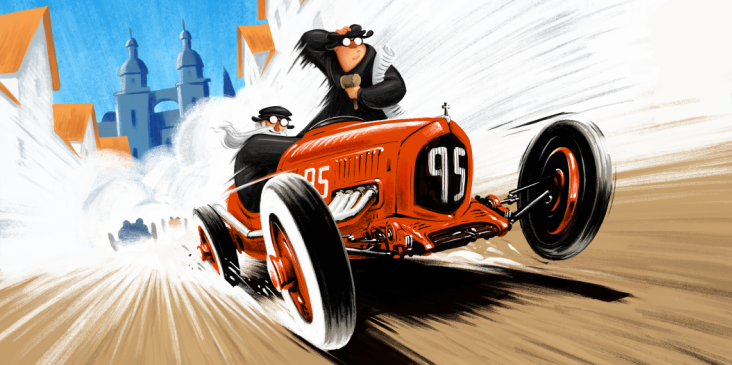“At thy right hand there are pleasures for evermore” (Ps. 16: 11)
“The first angel sounded, and there followed hail and fire mingled with blood, and they were cast upon the earth: and the third part of trees was burnt up, and all green grass was burnt up” (Rev. 8:7).
The seven trumpets follow the same general pattern that the seven seals did—in that the first four are divided from the final three. In this case, the last three trumpets are identified as “woes.” With the seals, the first four were associated with horsemen. There is no pressing reason to take all these in a serial fashion, as though we now have a total of fourteen railroad cars, or beads on a string. The description is of the apocalyptic destruction of the city of Jerusalem, and each trumpet gives us a fuller picture of what was going to happen in the one cataclysmic judgment that was going to fall upon that wretched city. The symbolic language here is of an exhaustive devastation, but the plain warning of Jesus indicates that these symbols are not overblown when we consider what was actually going to happen to the city and the surrounding territory of Judea.
“Then let them which be in Judaea flee into the mountains” (Matt. 24:16).
“For then shall be great tribulation, such as was not since the beginning of the world to this time, no, nor ever shall be” (Matt. 24:21).
The sounding of the trumpets signals the commencement of battle—this is God’s war against an apostate nation. The combination of hail and fire and blood make us think of the judgment that God rained down upon Egypt (Ex. 9:23; Ps. 18:13; Ps. 78:48; Ps. 105:32). The destruction of Jerusalem occurred in 70 A.D. but there was plenty of devastation to Judea in the years running up to that fateful year. Israel, once gloriously delivered from Egypt, had herself become Egypt.
In this passage, it says that a third of the trees were destroyed. Josephus records that the Romans cut down all the trees around Jerusalem for about ninety furlongs out (with a furlong being 220 yards). Jerusalem was also surrounded with pleasant gardens, which were also wiped out. This was devastation enough, but it is also possible that the grass and the trees represent men (as possibly indicated in Rev. 7:3 and 9:4)—the trees being kings, princes and rulers, and the grass being the ordinary folk. In any case, whether it was one or the other, or both, it was a grim situation.
